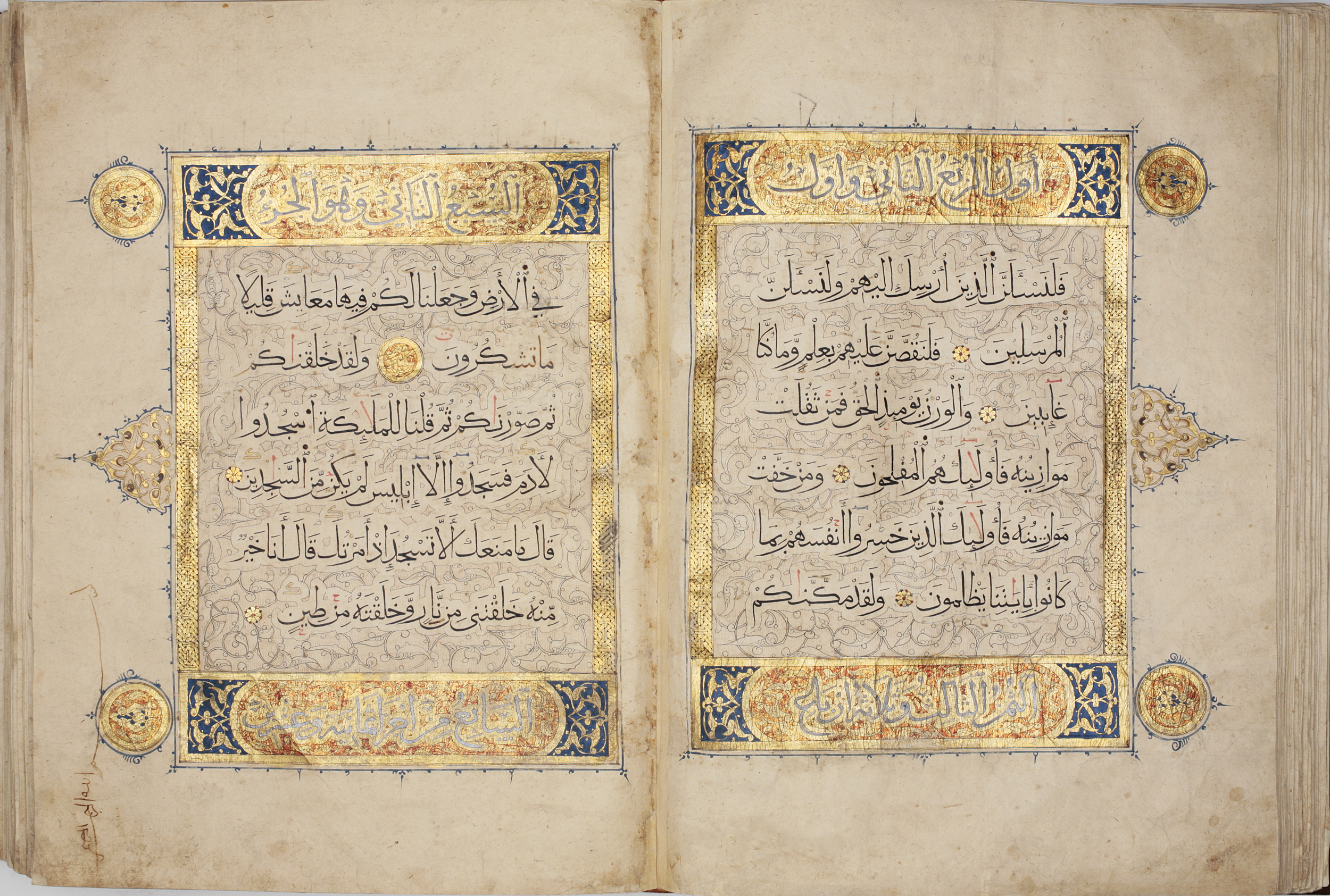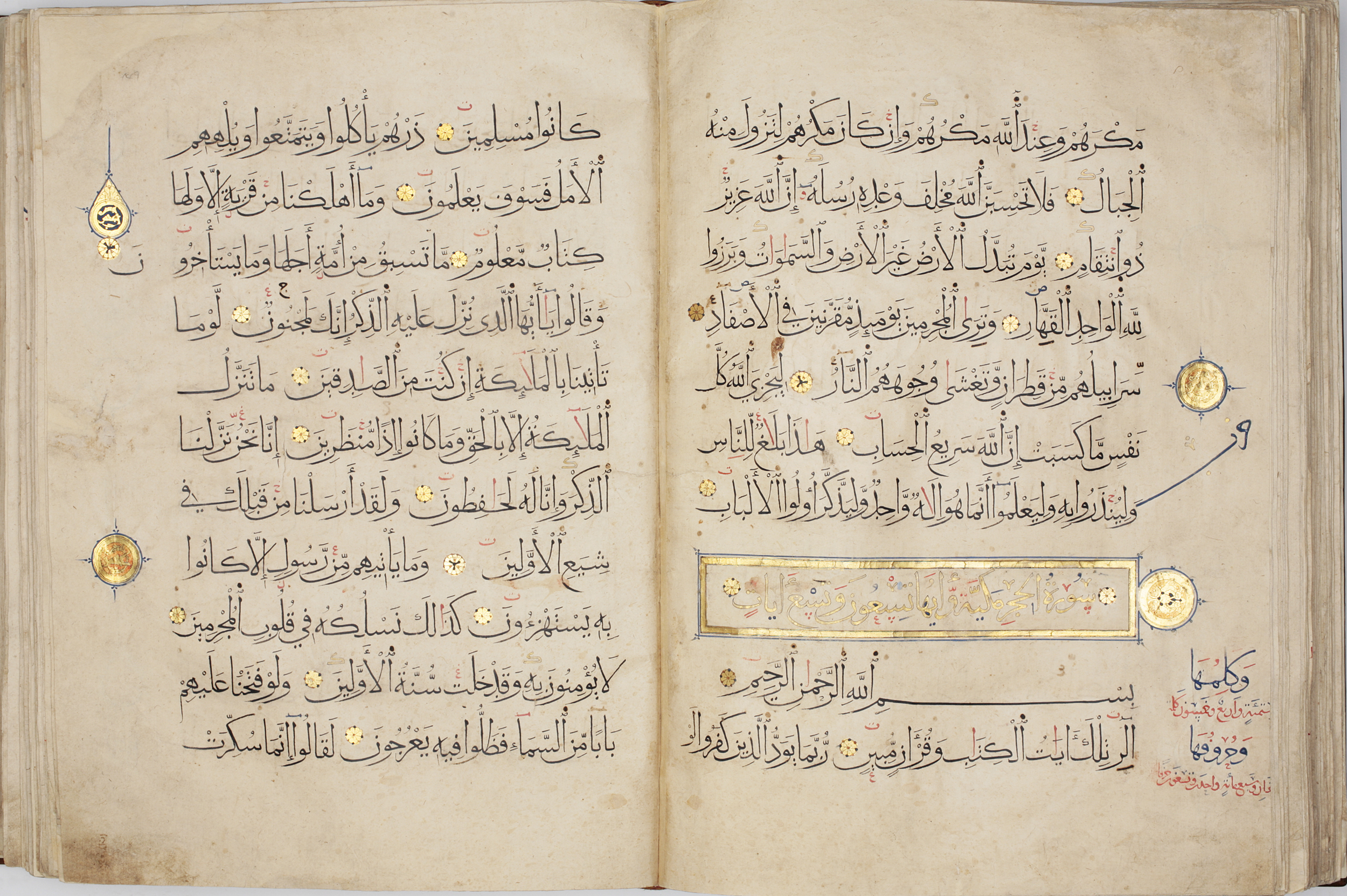 Print Page
Print Page
 Print Page
Print Page
Location: Egypt, most probably Cairo
Materials: ink, gold and opaque watercolour on paper; modern facsimile binding
Dimensions: 374 folios; 57.5 x 45cm
Accession Number: QUR 317
Other Notes:
Unusually for a Mamluk Qur’an, the opening pages of each quarter (rub‘) of the text are illuminated. The most striking feature of these illuminated pages is their beautifully drawn spiral split-palmette scrolls on a ground of fine reddish-brown hachuring, which is broken to reveal the words in ‘clouds’. They are arranged as panels, with illuminated head- and footpieces and borders of elaborate gold plaiting, and marginal hasps outlined in blue. The copyist, Muhammad ibn Ibrahim ibn ‘Abd al-Rahman al-Maydumi, may have also been responsible for the illumination.
The volume was endowed upon the mosque built by Sayf al-Din Qusun al-Nasiri, an amir of Sultan al-Nasir Muhammad, near the Bab Zuwaylah in Cairo, which was completed in 729–30 AH (1329–30 AD).
Script:
main text copied in muhaqqaq script, incidentals in thulth; 11 lines to the page
Bibliography:
D. James, The Master Scribes. Qur’ans of the 10th to 14th Centuries AD, The Nasser D. Khalili Collection of Islamic Art, volume II, London 1992, cat.41, pp.162–7.
J.M. Rogers, The Arts of Islam. Masterpieces from the Khalili Collection, London 2010, cat.178, p.153.

